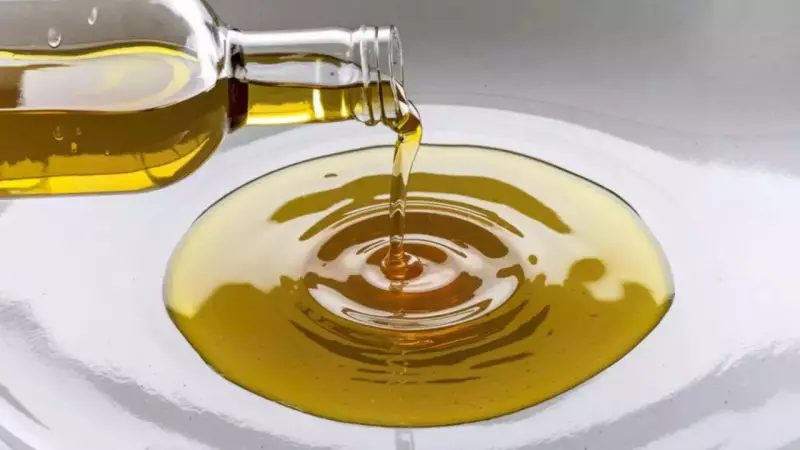
Selecting the appropriate cooking oil plays a crucial role in maintaining cardiovascular wellness over time, particularly since most Indian households use oil daily for frying, sautéing, baking, or dressing salads. Among the numerous options available, olive oil and vegetable oil stand out as popular choices, though they differ substantially in their production methods, fat composition, and nutritional benefits.
How Fatty Acids Impact Your Heart Health
Both olive oil and vegetable oil contain heart-friendly unsaturated fats, but their specific fatty acid profiles vary significantly. Olive oil naturally contains high levels of monounsaturated fatty acids (MUFAs), particularly oleic acid. These MUFAs are renowned for their ability to support healthy cholesterol levels by reducing LDL (bad cholesterol) while maintaining or slightly increasing HDL (good cholesterol). Additionally, they contribute to reducing inflammation, enhancing metabolic function, and supporting proper blood vessel activity.
Vegetable oils, however, typically contain a higher proportion of polyunsaturated fatty acids (PUFAs). Common vegetable oils like sunflower, safflower, corn, soybean, and cottonseed are rich in omega-6 PUFAs, while canola and soybean oils also provide valuable omega-3s. These polyunsaturated fats effectively lower LDL cholesterol and triglycerides, offering significant heart health benefits. The balance between omega-6 and omega-3 fats is critical though—excessive omega-6 relative to omega-3 may promote inflammation. Therefore, selecting vegetable oils with some omega-3 content, such as canola or soybean oil, provides better cardiovascular advantages.
Scientific Evidence Supporting Oil Benefits
Large-scale, long-term research consistently demonstrates that replacing saturated fats with unsaturated fats from sources like olive and vegetable oils reduces heart disease risk. Studies indicate that regular consumers of olive oil, especially extra virgin varieties, tend to experience lower rates of heart disease and improved cholesterol profiles.
A comprehensive meta-analysis published in PubMed Central confirmed that higher olive oil consumption correlates with reduced risks of cardiovascular disease, type 2 diabetes, certain cancers, and overall mortality, underscoring its potent protective health properties.
Vegetable oils also show substantial evidence of cardiovascular benefits, particularly when substituted for butter, ghee, coconut oil, and other saturated fats. A major prospective study involving 521,120 adults, published in BMC Medicine, revealed that replacing butter or margarine with non-hydrogenated vegetable oils like canola oil was associated with significantly lower cardiometabolic mortality, highlighting the protective value of polyunsaturated fats.
Oils containing both omega-6 and omega-3 fats, such as canola and soybean oil, appear especially protective. Comparisons between olive oil and vegetable oil frequently show similar improvements in cholesterol levels, inflammation markers, and metabolic indicators, meaning both can support cardiovascular health when used appropriately.
Processing Methods and Nutritional Impact
The extraction and processing methods significantly influence the nutritional quality of cooking oils. Olive oil is typically extracted through mechanical pressing of olives and comes in several grades. Extra virgin olive oil (EVOO) represents the least processed and most nutrient-rich variety, obtained without heat or chemical solvents, which helps preserve natural antioxidants, polyphenols, and flavor compounds.
Refined olive oil undergoes filtering and processing that reduces its antioxidant content but increases its heat stability for high-temperature cooking applications.
Vegetable oils, especially blended varieties labeled simply as vegetable oil, generally undergo more intensive refining processes. This typically involves high-heat extraction, chemical solvents, deodorization, and bleaching. While refining creates a stable oil with neutral flavor suitable for frying and baking, it also removes much of the oil's natural beneficial compounds. Consequently, most commercially available vegetable oils contain fewer beneficial plant compounds than minimally processed olive oil.
Beneficial Compounds for Heart Protection
Extra virgin olive oil distinguishes itself through its rich concentration of bioactive plant compounds. It contains polyphenols, tocopherols (a form of vitamin E), and other natural antioxidants that help protect cells from oxidative damage. These compounds have been linked to improved blood vessel function, reduced inflammation, and better management of metabolic disease risk factors. Many of these benefits are specifically associated with EVOO rather than refined olive oil varieties.
Vegetable oils do contain beneficial nutrients in their unprocessed state, but most commercial versions lose significant amounts during refining. Natural antioxidants and vitamins are substantially reduced, though some oils are fortified with vitamin E after processing. While the PUFAs in vegetable oils still support heart health, the antioxidant advantage clearly favors extra virgin olive oil. This distinction explains why EVOO features prominently in heart-healthy eating patterns like the Mediterranean diet.
Both olive oil and vegetable oil can contribute to a heart-healthy diet, but the optimal choice depends on your cooking habits and nutritional preferences. Extra virgin olive oil offers superior antioxidant and polyphenol content, making it ideal for salad dressings, drizzling, and moderate-heat cooking. Vegetable oils, particularly those with balanced fatty acid profiles like canola oil, work well for high-heat cooking and provide valuable polyunsaturated fats. Regardless of which oil you select, the most crucial step involves replacing saturated and trans fats with unsaturated fats to support long-term cardiovascular wellness.






